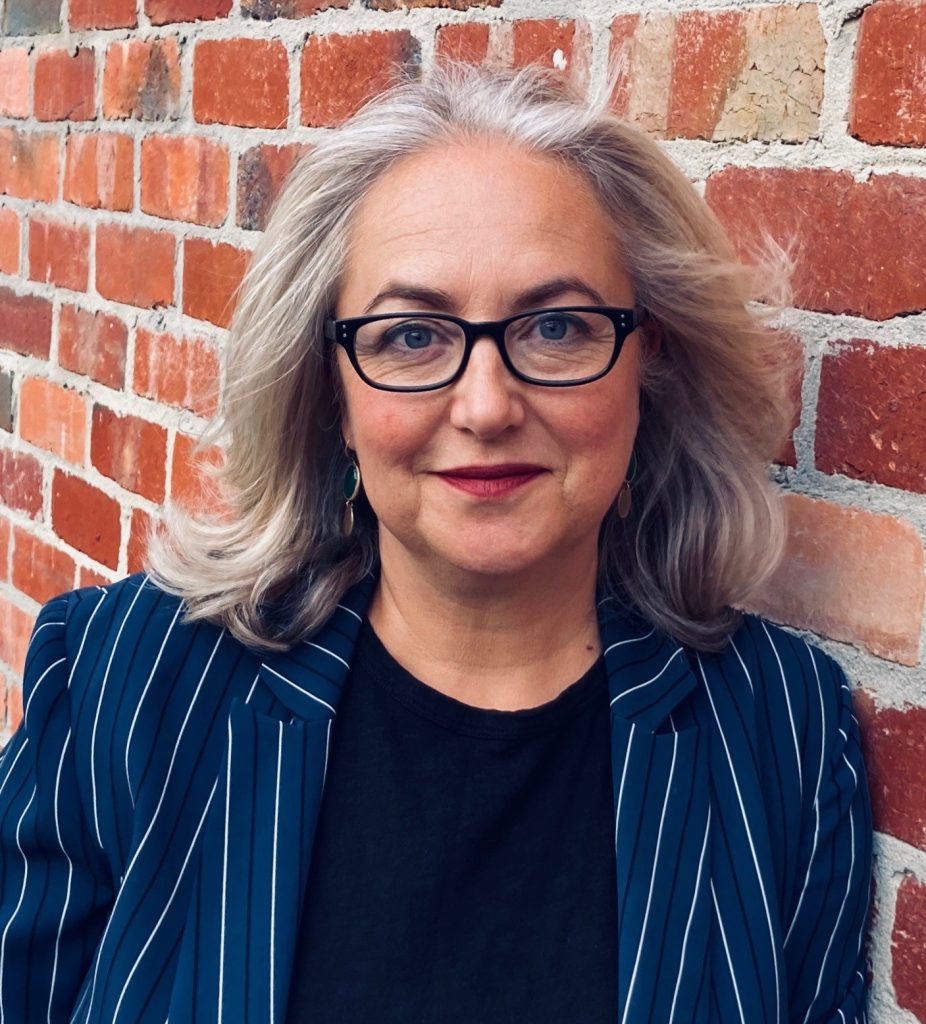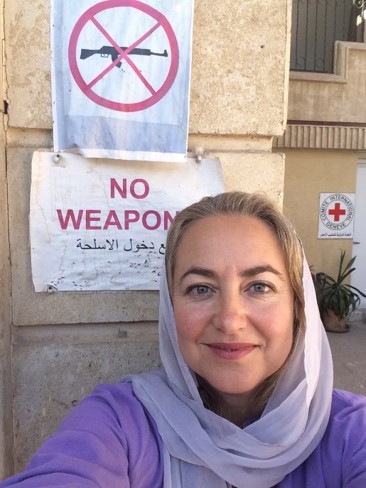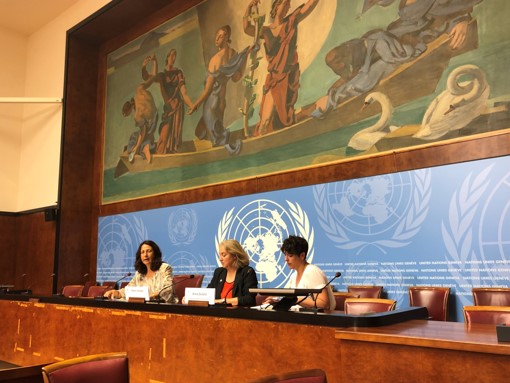Brooker Executive Perspective:
Dr Helen Durham, CEO of RedR Australia
In this edition of Brooker Executive Perspectives, we speak with Dr Helen Durham, Chief Executive Officer of RedR Australia. With a distinguished career spanning almost 30 years in the humanitarian sector, Dr Helen has worked in some of the world’s most complex and high-stakes environments. From negotiating with military leaders in conflict zones to shaping global humanitarian law in Geneva. As a trained lawyer with a PhD in international criminal law, she has been the first woman and first Australian to hold senior director-level positions at the International Committee of the Red Cross. Since taking the helm at RedR Australia, Helen has combined her deep legal expertise with a people-centred leadership style, guiding the organisation through sector change, funding challenges and the evolving needs of humanitarian deployment. Her insights on leadership, purpose and resilience offer valuable lessons for executives across all sectors.

Leighton:
It’s great to be sitting here with Dr. Helen Durham of Red R, CEO. Firstly, can you give us a quick overview of what your job entails?
Helen: Certainly. As CEO of RedR Australia, I spend a lot of time reaching out to UN agencies and other organisations that use our deployees. I am also very involved in the humanitarian training we run. Because of the changes happening in the sector, there is a lot of people management, supporting people, crafting visions and ensuring we are sticking to our strategy. So it is engaging on our deployments, it is working on humanitarian training, and it is also people management.
Leighton:
Your career did not begin in the humanitarian world. How did you get here?
Helen: When I was studying law, I always saw it as a tool to do some sort of social change. I began in labour law, which I found interesting, but I realised I was more drawn to international work, using the law to carve out equity and justice globally. That took me to New York for a PhD focused on the prosecution of rape as a war crime, which sparked my passion for the laws of war.
I then spent almost three decades with the Red Cross and Red Crescent Movement in roles across Australia, the Asia Pacific, and Geneva. It had a legal basis, but I was seeing the law as something that could change behaviour and make the world a little bit of a better place.
Leighton:
What helped you grow from a technical expert to a leader?
Helen: Taking the technical skills as a lawyer and evolving them with a master’s and a PhD was very useful. My training in psychology and psychoanalytic theory also shaped how I work with people. I used these skill sets when I worked for the Australian Red Cross, and then they were really taken up in my role as Director of Law and Policy for the ICRC in Geneva. In that role, of was dealing with authorities, governments, non-state armed groups and many others to reduce suffering during times of armed conflict.
As Legal Advisor in the Pacific, my role was about influence and diplomacy. I learnt how to enter a conversation, find common ground and build from there. That skill deepened when I dealt with non-state armed groups, militaries such as the Russian military, and environments like Mogadishu and Gaza. You need a deep awareness of the environment you’re in if you actually want to change behaviour.
Leighton:
So what drew you to the CEO role at RedR?
Helen: I wanted to consolidate the different skills I had learnt while working closely with people. RedR was the right size NGO, with a great product of deployments and training. It is unusual in Australia to find a role with such a local footprint and a global analysis, and that really appealed to me.
Leighton:
You are now based in Melbourne, which is a long way from the locations you have been previously. How would you describe any key differences between being located in Geneva and being located in Melbourne in terms of how you can have an impact?
Helen: One of the things I found very interesting when I first started at the International Committee Red Cross was that I was the first woman and the first Australian in 150 years of the institution’s history to play the role of director of law policy. And that was because it was a very masculine environment. You’re dealing with a lot of conduct of hostilities and military issues. And also, the ICRC traditionally had been a very Swiss-oriented organisation. And it’s changed now, but that’s how it was. What I found is that in your own environment in a country like Australia, where you speak the language and you’ve grown up here, you have a better understanding of the contours of how to actually interpret behaviour. When you’re in another environment, especially if you’re working with interpreters, either globally or even in Geneva, with French, but also English, you have to work a lot harder to try and get the subtext of what is going on, so you can address that.
But I also found being the first is often both a challenge, an honour, but painful. And a lot of people thought the challenge would be being the first woman in that role, but in fact, it was culturally being the first Australian in the directorate of the ICLC that’d never had an Australian there before.
Additionally, in Australia, we tend to be more informal, even with hierarchy. If Australians spoke French, we would not use ‘vous’, we would use ‘tu’. Staying true to yourself while adjusting around the edges is an interesting leadership balance.

Leighton:
What are the most important leadership skills in the humanitarian sector?
Helen: The most important skill is to approach every situation with clarity about the problem, and then listen very carefully to others about potential solutions. Often, people who are affected by a particular problem actually are the ones who first know the solutions.
You might have 20 or 30 years of experience, but you are there for a short time. These communities live there. Combining technical expertise with humility is key.
Leighton:
And as a leader in the humanitarian space and having a lot of purpose woven in throughout your whole career, what would you say to those who are deciding on a career pathway?
Helen: It is as complicated, as difficult and as heartbreaking as other areas. You need to be as skilled, strategic and able to see opportunities as any other sector. It is also highly competitive, so stand out by building unique experiences and demonstrating agility.
I describe myself as “a short-term pessimist, but a long-term optimist”. Things often improve, but over a long period of time, and it can be frustrating when we step backwards. Despite the challenges, I believe meaningful change is possible.
Leighton:
Is balance possible in such a demanding career?
Helen: I prefer to talk about proportionality rather than balance. Some weeks, you lean heavily into work because of urgent, life-or-death situations. Other times, you need to be there for family. Perhaps over a wider period, you can get a balance, but not every day. So I think this sense that every day we have to find the right balance is something that can put extra pressure on ourselves. And I think it’s okay to say, well, at this moment in time, I can’t find the balance to be everything to everyone. I need to lean into this, but I will adjust and pivot later. So, I think we should say work-life proportionality.

Leighton:
If you were to cast your mind forward within the humanitarian sector, would you have any trends or bold predictions that you would be interested in calling out?
Helen: I think the sector will see rocky times with reduced global funding, but also opportunities. We see a discourse that often leans more towards populism and polarised views. However, I think that AI and new tech can help serve people in crisis. We are running a short course on AI for humanitarians. Yes, there are ethical concerns, but we should not be paralysed.
We also need to adapt to overlapping crises and sequence responses differently. Collaboration between organisations will be key. Never waste a crisis; it is a chance to work together more effectively.
Leighton: What advice would you give your younger self?
Helen: My career has not been so much about a linear progess, like climbing steps, but more like playing Marco Polo; hearing a noise, moving in that direction and trusting you will find the next step. Sometimes you put more energy into family, other times into work. So I would tell her, “It’s OK, you’ll find different ways and different modalities to move forward in your career. At times, you need to spend more energy, perhaps if you want to be a parent, and other times you surge more into your work. So I would certainly give her that advice.
Leighton:
You are out there dealing with conflict, dealing with disaster, and many other high-stress situations. On a personal level, how do you deal with some of the high-highs and the low-lows of being a humanitarian in the field?
Helen: It is about finding inner stability. Some high points of my career have involved negotiations where you save thousands of lives, and it’s really quite incredible, and you say, “Wow, that was a really excellent day”. And then you have lows, where colleagues are kidnapped or killed or in a very bad way. Luckily, with Red R Australia, that has never occurred, but in previous roles, particularly when with the ICRC, it has. You bank the good days to sustain you through the hard ones.
Leighton:
So, how do you see your role, the structure, the organisation of Red R and the role that it will play, looking from 2025 forward?
Helen: RedR has amazing roster members and a growing interest in humanitarian training. We can apply our skills both internationally and domestically. I think that there are opportunities for RedR to work more closely with other organisations, such as Australian Volunteers International, and to look at our role we could play domestically in providing support. We have amazing people who can go into places like Myanmar when there’s a natural disaster, but we can also use those skills to support other parts of Australia when we too have natural disasters. So I think there’s something in the space of being able to think more creatively and more widely with the skills that we’ve got and what’s appropriate for our needs today. My vision is “a future of the sector that is sustainable and able to withstand the shocks that we’re going to have as we move forward”.
Helen, thank you for your time today. It’s been great to have you as part of our Brooker Executive Perspective conversation today.
– Leighton Cantrill